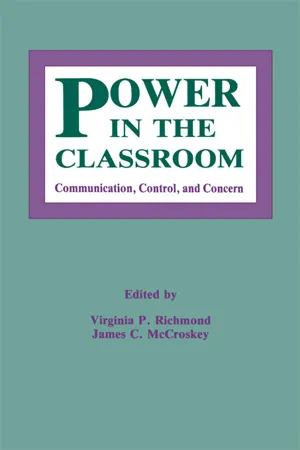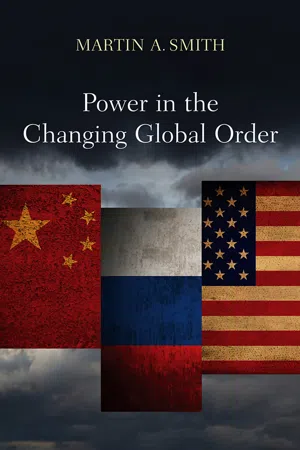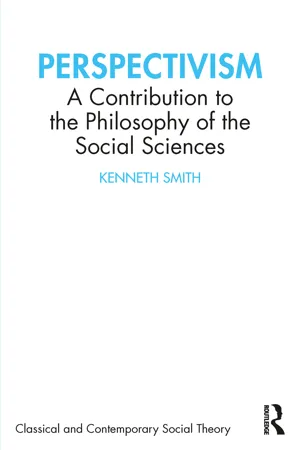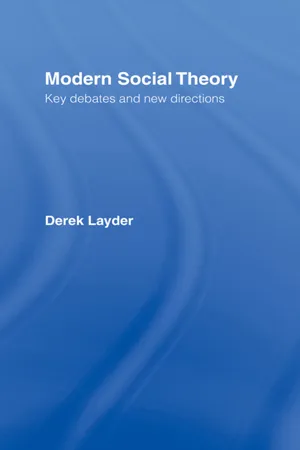Social Sciences
What Is Power
Power refers to the ability of individuals or groups to influence or control the behavior of others. It can manifest in various forms, such as political, economic, or social power. Power dynamics are central to understanding relationships and interactions within societies, as well as the distribution of resources and opportunities.
Written by Perlego with AI-assistance
Related key terms
7 Key excerpts on "What Is Power"
- eBook - ePub
Power in the Classroom
Communication, Control, and Concern
- Virginia P. Richmond, James C. McCroskey(Authors)
- 2012(Publication Date)
- Routledge(Publisher)
CHAPTER 1Power and Control:Social Science Perspectives
Robert A. BarracloughUniversity of New MexicoRobert A. StewartTexas Tech UniversityThe meaning and implication of power has been both a fascinating and mysterious topic of discussion for thousands of years. Mysterious, very largely because people have never truly understood what power is, where it comes from, and how it works.-Lawless, 1972, p. 230T he subject of power, of interest to people for millenia, has been on the social science agenda for at least the last 100 years. George Simmel, the father of American sociology, suggested in the late 1800s that the exercise of power among people was a central issue deserving of study and understanding (Simmel, 1896). Russell (1938) wrote of power as the fundamental concept in social science, “in the same sense in which Energy is the fundamental concept in physics” (p. 10). Lewin felt that “Not the least service which social research can do for society is to attain better insight into the legitimate and non-legitimate aspects of power” (Marrow, 1969, p. 172). Mannheim (1950) argued that “Power is present whenever and wherever social pressures operate on the individual to induce desired conduct” (p. 46). Kornhauser (1957) wrote of “one most important—and in my judgment greatly under-emphasized —aspect of the relations of social science to society, namely, questions of social science in the context of the power structure” (p. 187). Writers from sociology, psychology, communication, management, politics, organizational behavior, and other disciplines have continued to stress the centrality of power to any explanation of the human experience.For all that effort, the first, and perhaps most obvious, conclusion one draws from an attempt to review the subject is that there is a consistent lack of agreement about the nature and parameters of social power and influence. According to Pfeffer (1982), “Power is one of the more controversial of the social science concepts” (p. 64). Perrow (1970) concluded that the subject was clearly “the messiest problem of all” (p. ix). - eBook - ePub
Who Rules America?
The Corporate Rich, White Nationalist Republicans, and Inclusionary Democrats in the 2020s
- G William Domhoff(Author)
- 2021(Publication Date)
- Routledge(Publisher)
Chapter 1 Concepts, Definitions, and Power Indicators DOI: 10.4324/9781003231400-2 This chapter provides general definitions and empirical findings relating to concepts concerning power. It presents an overview of the four main organizational networks that are the basis for the power arrangements that exist in all societies and explains how they interact in the United States. The paradoxical social psychology of power is introduced. The concept of “class” is also introduced, and its two dimensions, economic and social, are discussed. Traditional American perceptions of power, class, and color are discussed on the basis of sociological and historical studies. “Cultures of resistance,” which develop when people are subjugated, along with “cultures of resentment,” which emerge in powerful groups when they are challenged, are explained. The conspiratorial theories that often emerge in cultures of resentment are examined. Finally, the ways in which the distribution of power can be studied in detail, through the use of “power indicators,” are introduced. In a word, this chapter prepares the way for clear sailing in later chapters when the concepts and findings in it are applied to the United States of the 2020s. Power Is a Relationship: The Social Science View of Power Power is first of all a relationship, whether between individuals or between groups of individuals. Power at the group level, which is the focus of this book, has two intertwined dimensions. Collective power, which is the capacity of a group, class, or nation to be effective and productive, depends upon the degree to which the individuals within that group, class, or nation have been able to develop positive social relationships and respect for each other, which lead to the necessary social morale and cooperation to develop organizations. Organizations are sets of rules and roles that human beings develop in order to accomplish a particular purpose in an easily repeated and routine way - eBook - ePub
Inequality and Power
The Economics of Class
- Eric A. Schutz(Author)
- 2011(Publication Date)
- Routledge(Publisher)
having effect upon the constraints and opportunities to which others must react and make the best. Power consists essentially in having such an impact upon the things that condition others’ choices. Any theory that treats individuals as choosing yet having no impact on others’ choices is one in which humans are totally non-social creatures, mere reactive digits, not active agents. Social power is not only a critical element of the processes of social decision-making but also a profoundly important aspect of the lives of actual human individuals in the real world.Although neglected in economics, the concept of power is elsewhere nearly universally acknowledged as an essential tool for comprehending all aspects of society. As it pervades all social life, most people probably understand it intuitively more or less well – or at least well enough to know the most basic principle of the economics of power: that power usually brings material benefit, that those who have it profit from it while those who are subject to it, or who don’t have it, are materially the worse off. How then could social power be considered irrelevant or only secondarily relevant for understanding the distribution of income and wealth? Social power belongs squarely in any theory of economic inequality, and this and the following chapters will focus in detail upon how that is so.1To see in a very preliminary way just how fundamental a thing social power is in the context of economic inequality, consider again the particular example of racial income and wealth disparity. Most people who have gotten past naive choice-theory thinking about racial economic disparity attribute it primarily to discrimination, and certainly empirical study of the subject strongly validates that theory. Yet at the level of first principles, accepting the reality of discrimination, a most critical question still remains: presumably in any inter-group case of discrimination, each group is equally capable of “discriminating against” the other group in a great variety of ways – and as well, when one group is discriminated against by the other, they usually reciprocate in whatever ways they find available. But if that is so in the case of racial discrimination in the U.S., for example, why is the effective outcome of discrimination one directional - eBook - ePub
Power in the Changing Global Order
The US, Russia and China
- Martin A. Smith(Author)
- 2013(Publication Date)
- Polity(Publisher)
1 Understanding PowerAs the discussions in the introduction here have indicated, there is relatively little for students of world politics and international relations to go on from within their own discipline in attempting to develop a deeper understanding of the nature of power. In order to do so it is, therefore, necessary to step outside disciplinary boundaries. It is worth considering, in particular, insights put forward by sociologists, who have argued that power is embodied in human relationships.Power as relationshipsSociologists are, indeed, interested primarily in human relationships. Therefore, if it is accepted that power is essentially a social phenomenon, it is hardly surprising that notably detailed and sophisticated explorations of it should have been developed by them. Amongst the best known of those who have studied power has been the American sociologist Talcott Parsons. His distinctive insight was the suggestion that, in terms of its functionality, power can usefully be compared to money. In developing this metaphor, Parsons stressed that power is not primarily a material commodity or resource. Rather, he argued that it should be viewed as a vital – indeed the vital – medium of exchange in social and political relations, just as money is the vital medium of exchange in economic and commercial life.1 In Parsons’s analysis, if it is viewed as a medium of exchange, then power, like money, is worth very little in its own right. Its real value is found in the extent to which – and the effectiveness with which – it can be operationalized to obtain desired outcomes. Thus, in this view, power is essentially instrumental. Its worth lies in the extent to which it helps in achieving or advancing desired objectives.In the world politics and international relations literature, the power/money comparison has been quite widely criticized. Such criticisms have been made on the grounds that power resources, especially material ones, are less fungible than money. To speak of the fungibility of money means that it can be converted into something of equivalent worth and value in a variety of different transactions and contexts. With this in mind, it has been argued that, for example, a significant military capability will not necessarily convert into an effective power resource in the economic or commercial arenas. Traditional military capabilities might not even realize effective power in the face of certain types of armed threat, such as those involving the kinds of insurgency which occurred in Afghanistan after 2001 and Iraq after 2003.2 - eBook - ePub
Perspectivism
A Contribution to the Philosophy of the Social Sciences
- Kenneth Smith(Author)
- 2022(Publication Date)
- Routledge(Publisher)
Economy and Society, 1978, Vol. I, Weber’s famously defines power as follows:Weber then distinguishes power from domination, as follows:A. ‘Power’ (Macht) is the probability that one actor within a social relationship will be in a position to carry out his own will despite resistance, regardless of the basis on which this probability rests (Weber, 1978 : 53).Weber then defines ‘Discipline’ as:B. ‘Domination’ (Herrscha?) is the probability that a command with a given specific content will be obeyed by a given group of persons.‘Discipline’ is the probability that by virtue of habituation a command will receive prompt and automatic obedience in stereotypical forms, on the part of a given group of persons.And then, almost as though he is making a note to himself not to forget exactly how difficult it is to define this particular sociological phenomenon, Weber follows up this tri-partite (or, as I think we might now say, this genuinely three-sided definition of power) with the following comment (1978: 53):And Weber says that:1. The concept of power is sociologically amorphous. All conceivable qualities of a person and all conceivable combinations of circumstances may put him in a position to impose his will in a given situation. The sociological concept of domination must hence be more precise and can only mean the probability that a command will be obeyed (emphasis in original).2. The concept of discipline includes the habituation characteristic of uncritical and unresisting mass obedience (1978: 53).For Weber then power does not mean A can get B to do what he or she wants, or even (as for Dahl) that A can get B to do something he or she would not otherwise do, but refers only to the probability that A can get B to do something. This probability might be very high indeed, indeed almost overwhelming, but Weber seems to hold open the possibility that someone might in fact, in any particular given situation, resist the will of the powerful who might not then always be able to get their own way however powerful generally - eBook - ePub
Understanding College and University Organization
Theories for Effective Policy and Practice
- James L. Bess, Jay R. Dee(Authors)
- 2012(Publication Date)
- Stylus Publishing(Publisher)
Marxists define power as the ability of a social class to achieve its interests (Braverman, 1974; Poulantzas, 1973). They argue that the interests of social classes are incompatible and that history reflects a series of class struggles that reveal tensions between oppressors and the oppressed. For example, Marx (1818–1883) identified the tension between labor and management as the defining element of capitalism. Those who own the means of production are able to dominate those who provide the labor. This tension merely replicates previous class struggles in social history such as feudalism (lord, serf) and slavery (master, slave).From the Marxist perspective, social class is the locus of power. Individuals do not exercise power. Instead, they are the bearers of class power; individual actions are the means through which class interests are promulgated. For example, a factory owner busting a union is not an act of individual power; instead, it is a manifestation of class power. Poulantzas (1973), in fact, argues that “the concept of power cannot be applied to inter-individual relations” (p. 105). Power is exercised across social classes, rather than among individuals.The Marxist perspective assumes homogeneity of interests within social classes and may underestimate the effects of localized action as a result of its focus on macrolevel class struggle. In contrast, postmodernists see power as “being diffused more broadly in the environment and among individual organizational members” (Martin, 1992, p. 159). Postmodernists are more likely to locate power in the routine social relations of everyday life.Foucault was concerned with micropolitics—the politics of everyday life, which occur in social institutions, organizations, professions, and academic disciplines. One of the foundational elements of Foucault’s perspective is that power and knowledge are inextricably linked. Those who are in positions of power control the means through which knowledge is created—for example, journal editors who decide what is published and what is not, grant and foundation officers who decide what research is funded and what is not, and faculty members who decide which books are assigned to students and which are not. Moreover, power is exercised through the production of knowledge (i.e., the process by which people generate claims about what is “true”). Specifically, Foucault (1976/1986) argued that “we are subjected to the production of truth through power and we cannot exercise power except through the production of truth” (pp. 229–230). - eBook - ePub
Modern Social Theory
Key Debates And New Directions
- Dr Derek Layder, Derek Layder(Authors)
- 2005(Publication Date)
- Routledge(Publisher)
The theory of social domains insists that power is a basic, ever-present feature of social reality and that it is ubiquitous. Power, therefore, is just as much a part of face-to-face conduct and individual identity (and personality) as it is a feature of the operation of markets and bureaucracies. In this sense, the theory of social domains tends to accord more with Foucault’s view of the omnipresence of power – that it is found everywhere right “down” into the finest capillaries of society – with the important proviso that power has to be understood as a multi-form phenomenon rather than the ontological unity that Foucault presupposes. Similarly, while Giddens’s notion of power as transformative capacity has an advantage over Habermas’s in that it fully appreciates its groundedness in everyday social interaction, it tends to reduce the variegated nature of power to a single unifying principle – in this case transformative capacity. On the other hand, Habermas, as I have said, tends to see power as exclusively tied to the steering capacity of societies (the political and economic principles of capitalism and the markets and bureaucracies that serve them). In this respect he views power as associated with the overall relations of domination in society (the system level) rather than as part of the give and take of everyday encounters and the capacities of individuals.None of these authors views power as a multi-form phenomenon, they all see it (in vastly different ways of course) as associated with particular levels of application in society and as having an intrinsic, unified nature. Part of the problem here is that the theoretical commitments of the authors often preclude various possibilities in this respect. For example Giddens’s humanism (and anti-objectivism) prevents him from understanding power as possessing properties independent of actors’ reasons and motivations. Conversely, Foucault’s strong aversion to humanism prevents him from embracing a notion of power as an aspect of face-to-face conduct. Habermas’s commitments are the most “open” and therefore the most promising in this regard, in so far as his theory of communicative action is an attempt to combine elements of humanism and objectivism (action and systems theories). However, even though the preconditions for a more embracing conception of power exist in Habermas’s work they do not seem to have “worked through” into his actual theory or analytic framework. The theory of social domains shares the open commitments implied in Habermas’s aim of synthesizing aspects of action theory and systems or institutional theory (Habermas 1987: 151) but tries to develop a more embracing notion of power. Thus conceptions of power that understand it as operating according to some single principle or sphere of influence do not do justice to the diversity of types and modes of power in society. Power has to be understood as a multi-form phenomenon that varies in terms of the different social domains in which it is implicated. It is very important to emphasize that this does not mean that the different forms and modes of power are sharply or cleanly separated from each other. On the contrary they meld into each other to varying degrees in different empirical circumstances. Similarly, the perception of different mixes and combinations of influence will to some extent vary according to the particular vantage point and interests of analysts and observers.
Learn about this page
Index pages curate the most relevant extracts from our library of academic textbooks. They’ve been created using an in-house natural language model (NLM), each adding context and meaning to key research topics.






